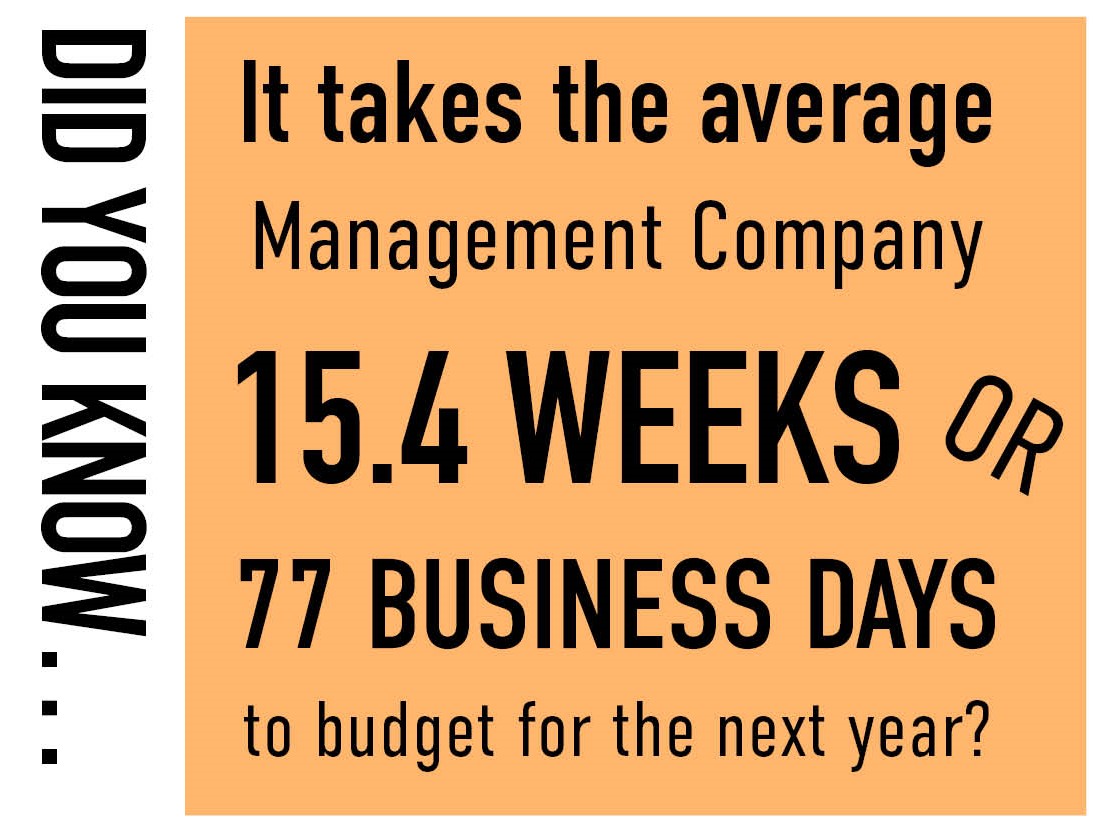Sharpen Your Pencils: It's Budget Season!
It's budget season once again.

The sound of pencils being sharpened, spreadsheet macros being tuned up and bottomless cups of coffee and Red Bulls being poured are heard throughout the property management land. Frantic questions about revenue growth expectations, utility increases and how much more do I have to pay a maintenance tech in 2020 are being emailed and IM’d among every property manager and RPM in the state. NOIs are being tweaked, capital bids are being value engineered and everyone is scrambling to get numbers, numbers and more numbers. And I would submit you are all wasting your time.
Yes, good budgets require good numbers. And bad budgets are usually the result of bad numbers. But budgets are less about numbers and more about questions. The best numbers are the result of FIRST asking the right questions. Even the best, most thoughtful, most analyzed numbers will be categorically wrong if they don’t answer the right questions. Its similar to your contract painter painting a unit perfectly only to discover they painted it Razzmatazz Red. And you specified Agreeable Gray. No matter how good the paint job is or how much you might like Razzmatazz Red, you aren’t going to pay for that unit paint because – well it’s the wrong freakin’ color! Great quality is irrelevant because the most basic assumption wasn’t met.
And there were no questions asked that would have clarified that assumption.
The most basic and fundamental question you need to ask is what are your client or owner or investors goals and objectives for the property? These questions are foundational to the rest of your questions, and to the success or failure of your budget. Are they value adders looking to reposition the property and renovate every unit and amenity area? Is it a broken lease-up and you are expected to start the lease-up process all over again? Are they looking to sell the property during the budget period? Are they long term holders with guaranteed investor distribution requirements? Do they want to make this the flagship property of their portfolio with a Main and Main address? The goals and objectives of ownership groups are virtually limitless. Therefore, you need to ask logical, well framed questions that will make clear their vision of the property. Without that information, you are likely to have a Razzmatazz budget on a gray property. And that’s not agreeable at all.
The next set of questions revolve around process. Who is going to write the budget? What kind of preparation requirements do you have? What budget software do you use or need to obtain? Do you have an accrual, cash or modified accrual accounting system? When are you obligated to deliver the budget and to whom? Do you send drafts and have a back and forth conversation about the detail in the budget or are you a one and done shop? Will you have budget camps? Who will have input on the budget from the site teams and when and how much input should they have? Are there corporate support groups that will have budget writing and/or reviewing responsibilities? Who provides final approvals to the budget? When and how should the final approval be communicated?

Once those questions are answered, you might be able to actually start writing the budget. Fire up the 10-key, hit the save button often, calculate percentage changes and start spitting out a forest worth of templated spreadsheets. Or are you? Now you have to ask the “traditional” budget questions. What are my revenue growth expectations? Can I budget out some expenses to keep operating expense at more reasonable level? Are property taxes being appealed? Will I be able to fully staff the property at ANY pay rate? Can I offset open positions with contracted services? Is there room to increase Other Income to offset the regulatory burdens of low application and pet fees? How much does it cost to re-paint Razzmatazz Red units?
After the actual heavy lifting of writing the budget, there are still questions, questions and more questions. Do my assumption notes correlate to the numbers (yes, this is the part where there are actual numbers and not just questions!)? Is my seasonality correct on revenue and utilities? Does this budget really capture the ownership’s vision of the property and meet their expectations? Does this budget adequately capture the nuance of ownerships expectations and the reality of the market?
The questions above are not designed to be all-inclusive or even a partial representation of the questions that need to be asked in order to write a great budget. Its not a check-the-box document. Its designed solely to start the process of asking the questions that need to be answered before you write a budget. The questions are as varied as the ownership groups and properties these budgets will end up serving. Start with basic and foundational questions and go from there. And after those questions are answered – then and only then – you can start the analysis paralysis process of putting numbers on the page. The ultimate question is – Is your budget a Razzamatazz or just agreeable?
Nobody likes to see red on a budget and there are always shades of gray…
